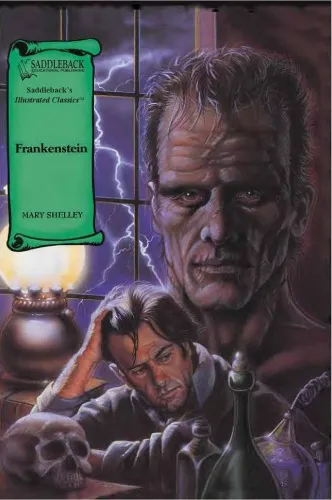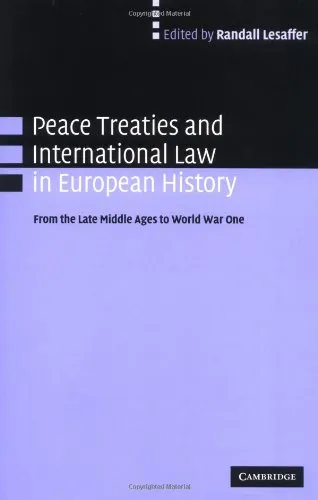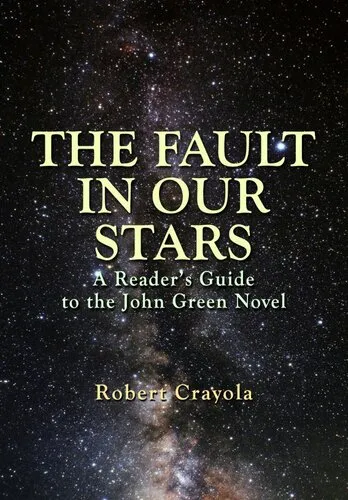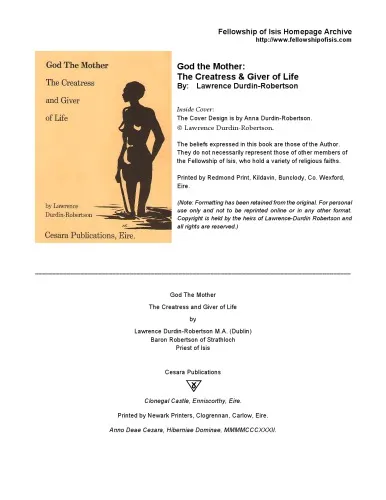Frankenstein (Illustrated Classics)
4.0
بر اساس نظر کاربران

شما میتونید سوالاتتون در باره کتاب رو از هوش مصنوعیش بعد از ورود بپرسید
هر دانلود یا پرسش از هوش مصنوعی 2 امتیاز لازم دارد، برای بدست آوردن امتیاز رایگان، به صفحه ی راهنمای امتیازات سر بزنید و یک سری کار ارزشمند انجام بدینکتاب های مرتبط:
معرفی کتاب «Frankenstein (Illustrated Classics)»
کتاب «Frankenstein» نوشته مری ولستونکرافت شلی، یکی از آثار ماندگار ادبیات گوتیک و رمانهای علمی-تخیلی است که با دیدی فلسفی و سوالات عمیق درباره طبیعت انسان و پیشرفت علمی به نگارش درآمده است. این کتاب در نخستین بار در سال ۱۸۱۸ منتشر شد و تا کنون همچنان مورد توجه خوانندگان و منتقدان ادبی قرار دارد.
خلاصه دقیق کتاب
«Frankenstein» داستان زندگی ویکتور فرانکنشتاین، دانشمندی باهوش و بلندپرواز است که در تلاش برای خلق زندگی جدید، موجودی ترسناک را از قطعات بدن انسانها به وجود میآورد. این مخلوق، که با نام هیولا شناخته میشود، پس از تلاش برای پیدا کردن جایگاهی در جهان، طرد شده و به دنبال انتقام از خالق خود برمیآید. داستان در بستر چشماندازهای زیبا و تاریک اروپا روایت میشود و به بررسی عواقب تصمیمات علمی و اخلاقی میپردازد.
نکات کلیدی از کتاب
- تأثیر قدرت علم: پرسشهای کتاب درباره مسئولیتهای اخلاقی دانشمندان همچنان به روز و مورد توجه هستند.
- ماهیت انسانیت: تلاش هیولا برای یافتن محبت و جایگاه در جامعه، سوالاتی درباره انسانیت و ارزشهای بشری را مطرح میکند.
- تنهایی و انزوا: هر دو شخصیت اصلی، ویکتور و هیولا، از تنهایی رنج میبرند و این انزوا منجر به تراژدیهایی در داستان میشود.
نقل قولهای مشهور از کتاب
"یگانه وظیفهای که در برابر دانشمند بودن داشتم، به پایان رساندن کارم بود."
"تو به نسل جدید من تعلق داری، همانگونه که من به نسل فناپذیر بشر."
چرا این کتاب مهم است؟
«Frankenstein» نه تنها به عنوان یک داستان گوتیک هیجانانگیز و تکاندهنده شناخته میشود، بلکه یک اثر فلسفی عمیق است که سوالهای مهمی را درباره پیشرفت علمی، مرزهای اخلاقی و ماهیت انسانیت مطرح میکند. این کتاب به عنوان اولین اثر علمی-تخیلی در نوع خود شناخته میشود و پایهگذار ژانری است که میلیونها خواننده و نویسنده را الهام بخشیده است. ایدههای بنیادین و پیامهای این اثر همچنان از نظر فرهنگی و اجتماعی معنا و اهمیت زیادی دارند.
Introduction to "Frankenstein (Illustrated Classics)"
When Mary Wollstonecraft Shelley penned "Frankenstein; or, The Modern Prometheus" in the early 19th century, she laid the groundwork not only for a new genre of literature but also ignited enduring debates about ethics in science and the nature of humanity. In this "Illustrated Classics" edition, the haunting tale of Dr. Victor Frankenstein and his monstrous creation comes to life more vividly than ever, combining timeless prose with captivating illustrations.
Detailed Summary of the Book
"Frankenstein" unfolds as a narrative within a narrative, beginning with the letters of Captain Walton, a seafarer who encounters the weary Dr. Victor Frankenstein in the Arctic Circle. Victor recounts his harrowing story to Walton, describing his youthful ambition and the dire obsessions that drove him to conquer the secrets of life and death. Upon animating lifeless matter, Frankenstein beholds not a human marvel but a monstrous aberration. His creation, spurned by society and his creator, embarks on a quest for vengeance against Victor, resulting in a tragic chain of events that questions who the real monster is.
The tale of "Frankenstein" is laden with philosophical reflection, emphasizing themes such as unchecked ambition and the consequences of man's pursuit of power. Shelley's narrative warns of the perils that come when man tries to transcend the natural order, presenting a complex interplay between creator and creature that culminates in mutual destruction and despair.
Key Takeaways
- Scientific Responsibility: Shelley's novel explores the depths of ethical responsibility in scientific exploration, prompting readers to consider the implications of playing god.
- Isolation and Alienation: The creature’s tragic existence underscores the devastating effects of social rejection and isolation, themes that resonate deeply in the modern psyche.
- The Duality of Man: The interplay between creator and creature highlights the dual nature of human endeavor, where noble intentions can birth unforeseen horrors.
Famous Quotes from the Book
“Beware; for I am fearless, and therefore powerful.”
“I ought to be thy Adam; but I am rather the fallen angel, whom thou drivest from joy for no misdeed.”
“Nothing is so painful to the human mind as a great and sudden change.”
Why This Book Matters
Mary Shelley’s "Frankenstein" is more than just a chilling tale of science gone awry; it is a profound commentary on the human condition and the limits of technological innovation. The novel’s complex themes and timeless narrative continue to inspire and challenge readers and thinkers alike, making it an essential component of literary study.
Its rich, gothic atmosphere and intricate illustrations in the "Illustrated Classics" edition enhance the novel's storytelling, offering a fresh perspective that both newcomers and long-time fans can appreciate. As we advance further into an age of rapid technological change, Shelley's warnings on the ethical considerations in scientific pursuit remain poignantly relevant, urging us to reflect on the legacies we wish to create.
Thus, "Frankenstein" endures not merely as a novel but as an essential discourse in morality, responsibility, and the eternal struggle between creator and creation.
دانلود رایگان مستقیم
شما میتونید سوالاتتون در باره کتاب رو از هوش مصنوعیش بعد از ورود بپرسید
دسترسی به کتابها از طریق پلتفرمهای قانونی و کتابخانههای عمومی نه تنها از حقوق نویسندگان و ناشران حمایت میکند، بلکه به پایداری فرهنگ کتابخوانی نیز کمک میرساند. پیش از دانلود، لحظهای به بررسی این گزینهها فکر کنید.
این کتاب رو در پلتفرم های دیگه ببینید
WorldCat به شما کمک میکنه تا کتاب ها رو در کتابخانه های سراسر دنیا پیدا کنید
امتیازها، نظرات تخصصی و صحبت ها درباره کتاب را در Goodreads ببینید
کتابهای کمیاب یا دست دوم را در AbeBooks پیدا کنید و بخرید
1738
بازدید4.0
امتیاز0
نظر98%
رضایتنظرات:
4.0
بر اساس 0 نظر کاربران
Questions & Answers
Ask questions about this book or help others by answering
No questions yet. Be the first to ask!














